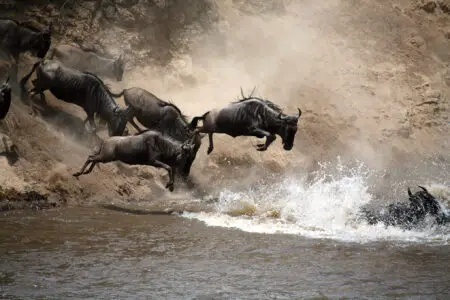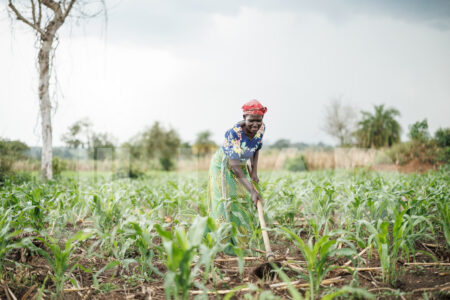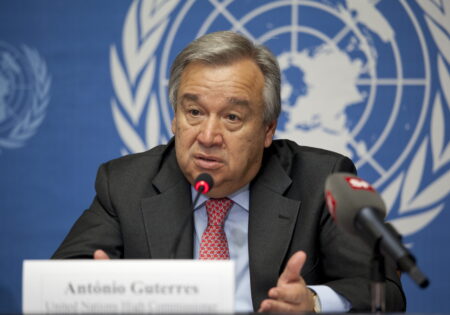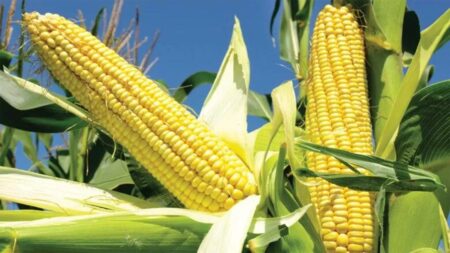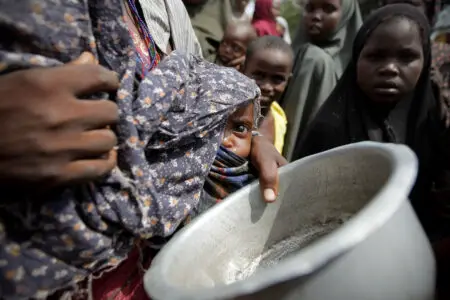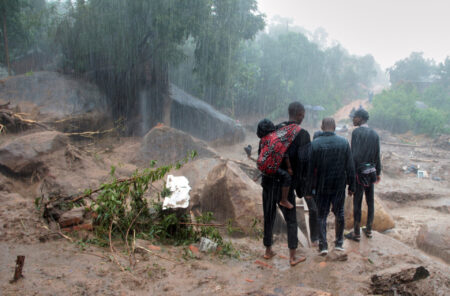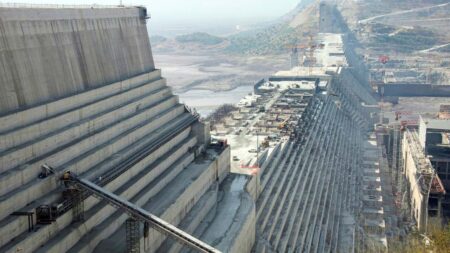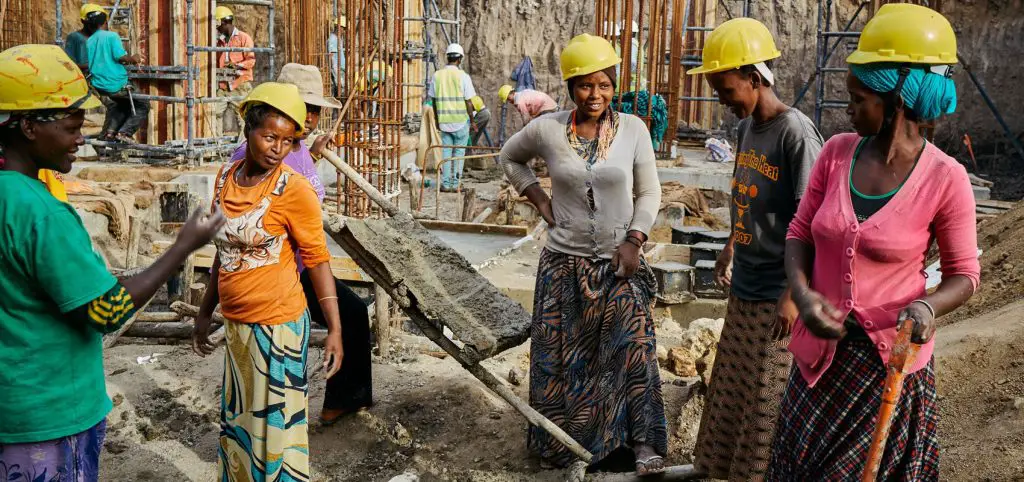- Africa’s new dawn: the rising role of digital and AI in agriculture
- Can Dangote Refinery Transform Africa Energy Ambition
- Gallup Survey: 80 per cent of Kenyan Workers Are Disengaged and Seek New Opportunities
- Madagascar Man Freed from 5KG Tumor After 15-Year Struggle
- How women in Africa are perceived and treated
- Sugar consumption in Kenya to Increase to 1.23 Million Tonnes
- Can Somalia and Turkey Oil deal Bring Change in Somaliland
- Remittances to Kenya dropped to $371.6 million in June, marking a six month low
Browsing: UN
- Every year, the Serengeti wildebeest migration involves the movement of vast herds of gnu, zebras, and gazelles.
- It is a tourism spectacle that sees Tanzania cash in on yearly tourism revenues of roughly $2,250 million.
- Tanzania tourism accounts for more than 14% of the country’s GDP.
- According to the African Development Bank’s Macroeconomic report, Africa will dominate the world’s 20 fastest growing economies 2024.
- According to the report, the medium-term growth outlook for the continent’s five regions is slowly improving.
- The report forecasts more substantial growth for Africa in 2024, outpacing the projected global average; the continent is the second-fastest-growing region after Asia.
Fastest Growing Economies 2024
The African Development Bank Group’s latest Macroeconomic Performance and Outlook (MEO) indicates real Gross Domestic Product (GDP) growth for the continecustom nfl football jerseys decathlon bmx luvme human hair wigs bouncing putty egg custom kings jersey dallas cowboys slippers mens johnny manziel jersey custom kings jersey custom youth hockey jerseys brock bowers jersey luvme human hair wigs black friday wig sale college football jerseys decathlon bmx uberlube luxury lubricant nt is expected to average 3.8 per cent and 4.2 per cent in 2024 and 2025, respectively. (https://unitedwepledge.org/…
- Creating climate-resilient farmers to address climate change has become urgent.
- Access to finance is essential to sustain and improve the agricultural livelihoods that vulnerable rural communities rely upon.
- Supporting small and medium-sized enterprises in rural areas supports increased employment, income, and services to rural communities.
East Africa is frequently impacted by food shortages and clusters of hunger due to complex mix of factors including unstable social and political environments, macroeconomic imbalances in trade and climate change.
Floods, pests, diseases are just a number of challenges hindering farmers in East Africa who rely on rainfed agriculture.
Not only these farmers are significantly limited by their marginalized conditions but also their lower capacity to adapt.
Climate change is another problem the world and this case Africa faces. It impacts the way struggling farmers navigate through crop failure and profitable market limitation.
Following the recent release of data confirming a sharp global …
- For African universities, governments and businesses, 5G Tech Spaces are part of the solution to enable Africa to leapfrog with clean innovation.
- Africa’s climate finance inflows remain very low, at 3 percent of global climate finance.
- The continent requires as much as $2.8 trillion through 2030 to implement its climate commitments.
Africa’s most renowned universities are keen to be at the forefront of Research, Innovation and Outreach (RIO) of technologies, products, services and operating models that reduce CO2 emissions and help attain Net Zero Emissions (NZE).
To achieve this, the gap between rhetoric and action needs to be reduced, if we are to have a fighting chance of reaching Net Zero by 2050 and capping the rise in global temperature at 1.5 °C in full attainment of the Paris Agreement.
Africa produces only about 4 percent of the world’s emissions, but is disproportionately vulnerable to the impact of climate change. …
The United Nations (UN) has called for major reforms for two institutions considered key players in the new world order. Antonio Guterres, the UN secretary-general, is pushing for major changes in the IMF and the World Bank.
According to Guterres, the International Monetary Fund has profited the rich nations at the expense of the developing ones. The UN secretary-general describes the response by IMF and the World Bank towards the COVID-19 pandemic as a “glaring failure” that left most developing nations significantly indebted.…
- World hunger is not the result of food shortage, and opposition to gene-edited crops, but due to political strife.
- Global food production is sufficient to feed all, but skewed distribution systems create a huge shortfall in countries.
- Analysis shows that even if GMOs were adopted globally, food shortage will persist.
Globally, Genetically Modified (GM) crops have been touted as the magic wand that could end world hunger. The ability of gene-edited crops to produce more over shorter periods of time and their resistance to diseases has been lauded. Further, GMO’s ability to resist poor weather conditions occasioned by climate crisis are earning them acceptance across nations.
These traits make Genetically Modified Organisms (GMOs) a solution to global food shortage. Increasingly, naturally maturing crops are yielding little, and their long gestation periods leave them vulnerable to climate crisis. Further their vulnerability to pests and diseases drastically cuts yields, exacerbating food shortages.…
- AfDB announces US$ 1.5 billion funding for emergency food responce
- AfDB pledges seeds & fertilizers for 20 million smallholder farmers
- Oxfam warns of famine in Somalia
In May 2022, the African Development Bank (AfDB) Board of Directors approved $1.5 billion in funding for what the bank called the African Emergency Food Production Facility; one year down the road, has the funding achieved its purpose?
AfDB President Akinwumi Adesina described the facility as a necessary support for Africa’s emergency food response in the face of shortages caused by the Russia-Ukraine war.
The bank’s President said the funding will help to significantly increase food production in Africa and avert what he at the time described as ‘the looming food crisis caused by the Russia-Ukraine war.’
Making the announcement at the Summit of G7 leaders last year in Washington, Mr. Adesina announced that the African Development Bank (AfDB) would out of its own …
- Price of staples goes up 300 percent compared to the same time last year.
- UNICEF estimates more than 4.8 million children are in dire humanitarian need.
- Over 500 000 people displaced
The social and economic impact of tropical cyclone Freddy on Malawi continues to worsen as inflation kicks in on all staple foods.
While recovery efforts are ongoing, Malawi is now under high pressure to stabilize food prices. It is now over ten days since the South-Eastern African country was hit by what is considered the worst-known tropical cycle to ever occur anywhere in the world.
“Very intense Tropical Cyclone Freddy was an exceptionally long-lived, powerful, and deadly storm that traversed the southern Indian Ocean for more than five weeks in February and March 2023. Freddy is both the longest-lasting and highest-ACE-producing tropical cyclone ever recorded worldwide,” reports the World Food Programme (WFP).
The report cites 1,078mm of rain fell …
- The DRC is viewed as a most promising member of the regional bloc offering a market of over 96 million people.
- DRC is also rich in many coveted minerals such as cobalt and Nickel, gold, and diamonds, which has caused a long-standing conflict.
- The EAC peace forces in the DRC were sent in early last year to restore peace and stability in the region.
The East Africa Community (EAC) has been touted as a model for regional economic blocs in Africa but the tension between Rwanda and the bloc’s newest member, DRC, is threatening to derail the region’s social and economic integration.
The two neighboring countries have had a dicey relationship in the recent past with the largest country of the EAC, the DRC, accusing the smallest country in the region, Rwanda, of supporting rebels within its borders.
The DRC is viewed as a most promising member of the regional …
- African nation’s like Rwanda are investing in top-notch ICT systems
- Industrialization in Africa is yet a challenge being tackled by most economies
- Despite the pandemic hitting global economies several African nations stood strong
Follow the numbers they say, if one wants to understand how Africa can go beyond the typical growth trajectory that does not commensurate with its natural capital and human potential to attain economic freedom. Sustainable development is rather crucial for Africa to attain. On that note, efforts such as Africa Continental Free Trade Area (AfCTA) are a tool the region employs to breathe life into that ambition.
Numbers point towards an exciting viewpoint that questions whether Africa can sustain its economic growth without adopting the best available, sustainable economic systems.
The region has been keeping a good track record over the past years. For instance, Tanzania—has become one of the fastest-growing economies in Africa—ascending towards a low-middle-income …





